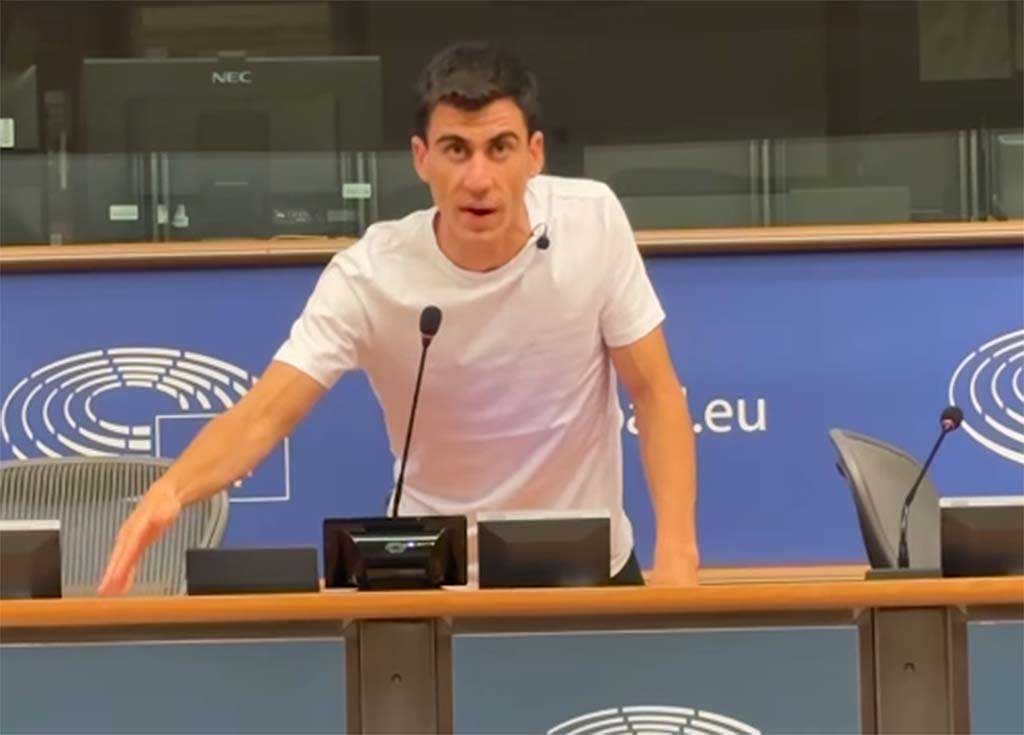Cyprus’ political parties on Saturday expressed fury after a guest on a podcast hosted by member of the European parliament Fidias Panayiotou, expressed doubt over the commonly accepted version of events regarding the death of Eoka fighter Grigoris Afxentiou.
That version of events states that British forces had been informed of Afxentiou’s location and poured petrol into his hideout before lighting it and burning him alive, but historian Michalis Michael told Panayiotou that this may not necessarily have been the case.
“It is said that Afxentiou told [his fellow fighters], ‘get out and I will stay here’. You could not fight inside the hideout. The weapon had to come out of a hole. The description states that the others got out, Afxentiou stayed, they shouted at him to surrender and he did not, they threw a grenade at him,” Michael said.
He then said that in 2017, he had discovered that four of Afxentiou’s fellow fighters had been put on trial, and that as part of that trial, a forensic report had been filed regarding the circumstances surrounding his death.
That report, he said, “described Afxentiou’s body and said that he had a hole in his right temple, which came from the left, that his left eye was gouged out, and that his jaw was broken”.
“This was new. All of this is reported in the newspapers. The initial claim of the forensic doctor was that he committed suicide. Later on, he said that the bullet was fired from a distance of 60 centimetres. Then, you think that for someone to commit suicide, they would not need 60cm. So, he probably did not commit suicide,” he said.
He added that Afxentiou’s family had “begged the judge not to say that he had committed suicide” and the judge had accepted their pleas and told the family that “we will say that it was a bullet from his ammunition which heated up and hit him”, but that “we will say that when he was burned, he was dead”.
Political parties were incensed by these statements, with Disy among the first to react, saying that it would not allow Cypriot history, which was “written with the blood of our heroes”, to be “rewritten by leftist ideologies”.
“The claim … that Grigoris Afxentiou committed suicide or was shot by a fellow activist constitutes slander and an attempt to desecrate the hero’s sacrifice. Neither the insatiable thirst for publicity of the dangerous social media politician [Panayiotou], nor the alleged ‘historical truth’ of leftist view can justify the tarnishing of the transcendental brilliance of Grigoris Afxentiou’s sacrifice,” it said.
It added that Afxentiou “will remain an eternal beacon of militancy and supreme virtue”, and that “we will never accept that the greatness of his sacrifice, as well as the greatness of Eoka’s national fight for liberation, be altered”.
Diko, meanwhile, said that “the sacrifice of Grigoris Afxentiou, like that of all the heroes of Eoka, constitutes an indestructible foundation stone of our national dignity and our collective historical memory”.
“It is a monument of honour which cannot be questioned or distorted in any way which would insult the sacrifices of our heroes. Let them leave the heroes out of their petty political and propagandist confrontations. Those who attempt to exploit the sacrifices of our heroes in such an offensive way deserve nothing but shame,” it said.
Akel moved to defend Michael, saying that “in his capacity as a historical researcher, [he] emphasised for anyone who listened … that Grigoris Afxentiou is an unsurpassed symbol of self-sacrifice and heroism of our homeland in the fight against colonialism”.
“It is clear that some are creating scarecrows for themselves to fight and sell cheap patriotism. For the sake of history, we recall that when the British colonialists were searching for Grigoris Afxentiou, the only newspaper which refused to publish his wanted notice was the Akel newspaper. This is to clarify what patriotism is,” it said.
Disy was itself incensed by Akel’s response, writing that Akel had “essentially adopted the narrative of the English of that era” and “desecrated the sacrifice of Grigoris Afxentiou”.
“For the sake of history, Akel did not support, but in fact disagreed with and in essence undermined the most brilliant fight of Cypriot Hellenism … Let them answer this: do they admit their historical mistake?”
Later on Saturday afternoon, President Nikos Christodoulides also made reference to the controversy, posting a picture of Afxentiou’s wanted poster onto his social media with the caption, “in the ultimate need, I will fight and die like a Greek, but they will not catch me alive” – a quote of Afxentiou’s.






Click here to change your cookie preferences